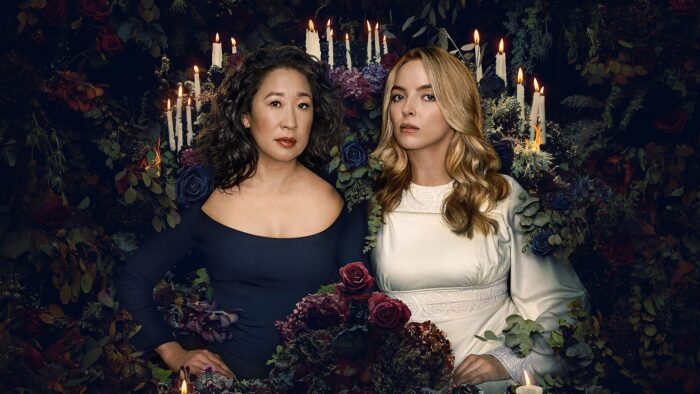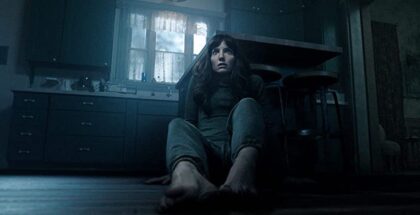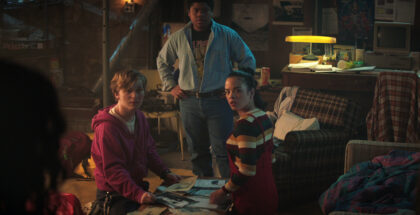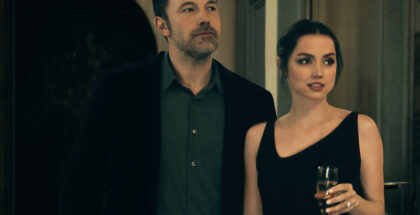UK TV review: Killing Eve: Season 4
Review Overview
Cast
6Script
2David Farnor | On 28, Feb 2022
Warning: This contains spoilers for Season 1 to 3. Never seen the series? Catch up with our reviews of previous seasons here.
“You’re still playing the same old game of chess.” “So what game are you playing?” That’s the sound of Killing Eve returning for its fourth and final season – and struggling to work out exactly what moves it wants to make before bidding farewell to the electrifying odd couple at its centre.
The show has always faced the challenge of living up to its own first season, which channelled the cat-and-mouse thrills of an agent (Sandra Oh’s Eve) and an assassin (Jodie Comer’s Villanelle) circling each other, while also being drawn closer together. Season 2, which began a neat but unrewarding tradition of handing over the showrunner reins to a new writer each season, expanded the world to craft a more intricate web of espionage and enemies, but the show’s driving force remained the intense bond between its leading women. Season 3 zoomed back in on them as a pair, pulling them together and leading them to confront their own feelings and identities – right up to a poignant finale that left them trying to walk away from each other, but (maybe) failing.
That, in itself, would have been a fitting end note, the duo forever caught off-screen in a two-handed tango of desire and death. But here we have Season 4 to wrap things up once and for all – and yet what’s surprising is how it only seems to unravel the series’ emotional and thematic threads further and undo much of the good that was once in the show.
Things start, again, with Eve and Villanelle apart, as they attempt to live on without the other. Eve is now working in private security, while Villanelle has become embedded in a church community and appears to be turning over a new leaf. Except, of course, things aren’t as clean-cut as that. By night, Eve is embarking on a revenge mission to wipe out “The Twelve”, while Villanelle is desperately hoping that her upcoming baptism will be attended by her ex-whatever-Eve-is.
And so the stage is set for another season that contrives to separate Eve and Villanelle only so they can be reunited once more – and, not unlike some mid-season moments in Outlander’s more uneven chapters, it’s a cycle that is frustratingly repetitive.
As always, there’s fun in just watching the two stars in action. Sandra Oh’s Eve isdons leathers and bikes around with a threatening authority, while crossing paths with all the old familiar faces (Kim Bodnia’s Konstantin and Fiona Shaw’s Carolyn) and sharing sparks with new colleague Yusuf (Robert Gilbert). Jodie Comer’s Villanelle, meanwhile, is amusingly manic and childish, as she declares she wants to be a good person, but can’t resist turning a Christian camp retreat into something nasty and bitter and doesn’t have the patience for actual redemption. (“Just dunk me!” she shouts at the priest, as he prepares to baptise her.)
But where the show’s twisting scripts once tapped into their screen presence to drive things forward with a fun unpredictability, it now feels like Oh and Comer are elevating material that has become disappointingly routine. Over three seasons, we’ve seen these women grow in their understanding of themselves and each other – but any steps in that journey of character development are reversed in this strangely disjointed denouement. Watching them play the same old game sounds entertaining on paper, but, unlike their eternal attraction to one another, it doesn’t make such sense.
Warning: Spoilers for the end of Season 4 follow
If Season 4 of Killing Eve begins with a shaky sign of what’s to come, the rest of the season only reinforces the suspicion that show doesn’t know what to do with its characters any more.
After three seasons in which Oh and Comer’s chemistry kept driving things forward, even as the scripts attempted to foreground its own espionage mythology, Season 4 proves the breaking point for that balancing act. What begins as a determined mission of revenge for Eve ironically ends up reducing her to little more than wanting to wipe out the Twelve, while Villanelle’s will-she-won’t-she dithering about helping Eve have no real relevance to her as character and everything to do with a show that needs to fill another six hours of screentime.
That becomes more painfully clear each time the pair cross paths, with them only finally sharing a proper kiss in the closing episode – a moment that almost feels like an afterthought, given the amount of time taken up during Season 4 by Carolyn and Konstantin, not to mention a new potential assassin called Pam.
Flashbacks to the formation of the Twelve, and Carolyn’s tragic loss of her father, feel like unnecessary, over-explained details, entirely at odds with the mystery and brisk pacing that made Season 1 such a breath of fresh air. Every time a location flashes up with a knowingly over-the-top title card, you can feel how much the novelty of the show’s style has faded – and, more to the point, how much that style (from costumes to locations and cinematography) has faded too. An attempt to repeat Eve and Villanelle’s steamy interactions with the sinister Hélène (Camille Cottin) come across like a low-budget remake, while an interlude involving a remote assassin, Gunn (Marie-Sophie Ferdane), sees the show literally go off on a tangent.
All this is underwhelming enough, but what really lets Season 4 down is the way it wraps things up, as Eve and Villanelle crash a meeting of the Twelve on a boat while a wedding happens. Eve, mistaken for the priest, distracts everyone by pretending to officiate proceedings and Villanelle goes below deck to take care of business. It’s a messily filmed sequence that’s tough to follow and, no sooner than it’s over, we find Eve and Villanelle being shot at.
They jump into the water, but Villanelle is shot and dies in the Thames. We never see the sniper responsible, and don’t even get to follow Eve’s reaction or response, which gives the whole thing the feeling of a rushed ending that has no idea to conclude events, let alone treat its lead couple with any kind of respect. “I did it, Eve,” says Villanelle, just before the fridging begins. “Don’t you mean we did it?” comes the reply. It’s a hollow line that sums up the creative disconnect that’s formed at the heart of the show.



















